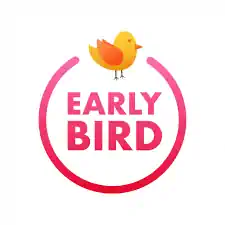Specific Learning Outcomes for Sub-strand 2.5 Foods/Feeding
By the end of the sub strand the learner should be able to:
- talk about different food eaten at home
- talk about the importance of eating clean food
- tell the importance of eating food
- talk about the dangers of sharing food from someone else’s mouth
- feed self-using clean hands or feeding items appropriately
- observe proper feeding habits
- maintaining a clean feeding area
- appreciate different foods eaten at home
Suggested Learning Experiences
- Learners to be guided in naming foods eaten at home
- Learners to be guided in telling of cleaning foods before eating
- Organise learners in groups to talk about foods
- they eat at home and school Learners are guided to read pictures of foods found in the local environment
- Learners are guided to colour drawings of foods
- Learners sing songs and recite poems on importance of eating food
- Be guided to discuss the dangers of eating food from someone’s mouth
- Individually learners practice feeding self
- Learners are guided to talk about proper feeding habits Learners practice cleaning the feeding area
- Learners tell stories, sing songs and recite poems on foods eaten at home and school
- Learners practice the appropriate cultural feeding habits using clean feeding items watch videos on different feeding habits, cleaning foods
- (fruits and vegetables,)
Key Inquiry Question(s)
- How do we eat?
- Why do we eat clean food?
- Why do we eat food?
- How should we behave when eating?
- Why should we use clean feeding items when feeding ourselves?
- Why should we clean our feeding area?
- What are the dangers of eating from someone’s mouth?
Core-Competences to be developed:
• Self-efficacy-feeding self
• Communication and collaboration –guided discussion
• Learning to learn-learning proper feeding habits
Link to Pertinent and Contemporary Issues(PCI’s):
• Health education-personal hygiene, not eating from other peoples mouth, eating clean foods
• Citizenship: guide learners about hygiene to clean the feeding areas
Link to other activity areas:
• Psychomotor and Creative Activities
• Music and Movement Activities
• Language Activities
Suggested non formal activity to support learning:
• Feeding programme
Suggested Resources: charts, videos, realia (feeding items)
Link to values:
• Respect
• Responsibility
Suggested community service learning activities:
• Parental engagement- reinforce feeding habits and cleaning foods before eating
Suggested assessments:
• Oral questions
• Observations
• Checklists
• Portfolios
Suggested Assessment Rubrics
Exceeds Expectation
Able to talk about foods eaten at home, tell importance of eating clean food, talk about dangers of sharing from someone else mouth, feed self-using clean hands, observe proper feeding habits, ,maintain clean feeding area
besides assisting others to hold the feeding items well.
Meets Expectation
Able to talk about foods eaten at home, tell importance of eating clean food, talk about dangers of sharing food from someone’s else mouth, feed self-using clean hands, observe proper feeding habits, maintain a clean feeding area.
Approaches Expectation
Able to talk about foods eaten at home, tell importance of eating clean food, talk about dangers of sharing from someone else mouth, observe proper feeding habits but cannot keep the feeding area and items clean
Below Expectation
Able to talk about foods, cannot tell the importance of eating clean food and cannot observe proper eating habits or hold the feeding items well while feeding self.
